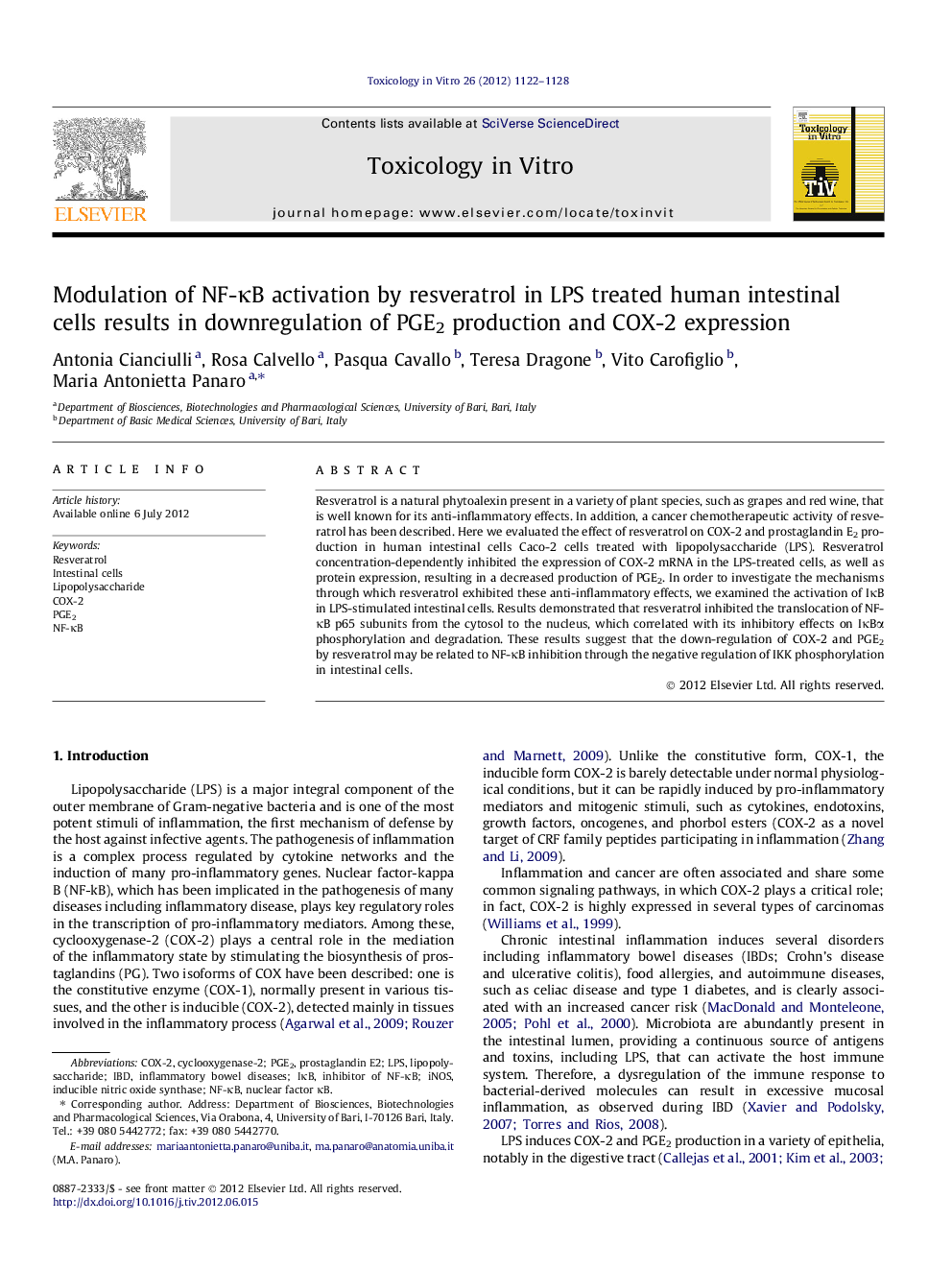| Article ID | Journal | Published Year | Pages | File Type |
|---|---|---|---|---|
| 5862996 | Toxicology in Vitro | 2012 | 7 Pages |
Resveratrol is a natural phytoalexin present in a variety of plant species, such as grapes and red wine, that is well known for its anti-inflammatory effects. In addition, a cancer chemotherapeutic activity of resveratrol has been described. Here we evaluated the effect of resveratrol on COX-2 and prostaglandin E2 production in human intestinal cells Caco-2 cells treated with lipopolysaccharide (LPS). Resveratrol concentration-dependently inhibited the expression of COX-2 mRNA in the LPS-treated cells, as well as protein expression, resulting in a decreased production of PGE2. In order to investigate the mechanisms through which resveratrol exhibited these anti-inflammatory effects, we examined the activation of IκB in LPS-stimulated intestinal cells. Results demonstrated that resveratrol inhibited the translocation of NF-κB p65 subunits from the cytosol to the nucleus, which correlated with its inhibitory effects on IκBα phosphorylation and degradation. These results suggest that the down-regulation of COX-2 and PGE2 by resveratrol may be related to NF-κB inhibition through the negative regulation of IKK phosphorylation in intestinal cells.
⺠Resveratrol significantly reduce COX-2 and PGE2 in LPS exposed intestinal cells. ⺠Resvetratrol inhibits the p65 translocation in LPS exposed intestinal cells. ⺠NF-κB inhibition by resveratrol down-regulate COX-2 and PGE2 in intestinal cells.
